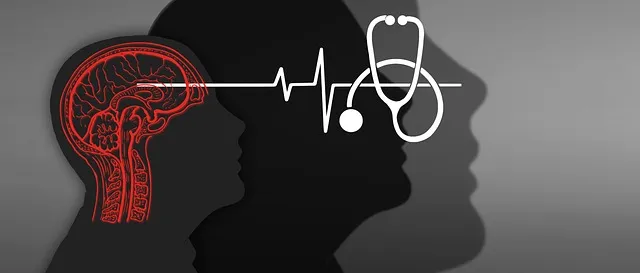In Littleton, where mental illness prevalence is high, Kaiser's multifaceted data collection methods play a vital role in enhancing mental health support systems. As a leading healthcare provider, Kaiser uses advanced tools to gather comprehensive patient information, improving both individual care and research. By analyzing trends within their patient population, Kaiser guides Mental Health Education Programs, burnout prevention, and stigma reduction efforts, ensuring optimal resource allocation for improved community mental health outcomes. Effective mental health care in Littleton relies on data analysis using advanced statistics and technology, offering personalized treatment plans based on insights like therapeutic approach outcomes. This approach ensures evidence-based, efficient, and tailored services, fostering a compassionate support system while maintaining stringent privacy protections under HIPAA regulations.
Mental health data analysis plays a pivotal role in understanding and improving healthcare services. This article explores critical aspects of this process, focusing on how organizations like Kaiser facilitate mental health data collection. We delve into techniques for analyzing and interpreting data to enhance patient care, while also addressing challenges and privacy concerns, such as the protection of sensitive information through secure practices. Understanding these elements is essential for organizations like Littleton to provide effective mental health services, ensuring patients receive the comprehensive care they need.
- Understanding Mental Health Data Collection and Kaiser's Role
- Analyzing and Interpreting Data for Effective Care
- Navigating Challenges and Ensuring Privacy in Mental Health Data Analysis
Understanding Mental Health Data Collection and Kaiser's Role

Understanding Mental Health Data Collection and Kaiser’s Role
The collection of mental health data is a multifaceted process that involves various stakeholders, including healthcare providers, researchers, and insurance companies. In the context of Littleton, where mental illness prevalence rates are significant, efficient data collection methods are crucial for effective support systems. Kaiser, as a leading healthcare provider, plays a pivotal role in this regard. They employ sophisticated tools to gather comprehensive patient information, focusing on symptoms, treatment responses, and overall well-being. This data is not only essential for individual patient care but also serves as a rich resource for mental health research and policy development.
When it comes to addressing burnout prevention strategies for healthcare providers, Mental Health Education Programs Design, and Mental Illness Stigma Reduction Efforts, Kaiser’s data collection practices can offer valuable insights. By analyzing trends within their patient population, they can identify areas where educational interventions or stigma reduction campaigns would have the most impact. This data-driven approach ensures that resources are allocated optimally, contributing to improved mental health outcomes for the community at large.
Analyzing and Interpreting Data for Effective Care

Effective mental health care heavily relies on the meticulous analysis and interpretation of patient data. By utilizing advanced statistical methods and technology, healthcare professionals can uncover valuable insights hidden within vast datasets. This process involves examining trends, identifying patterns, and correlating symptoms with specific treatments for personalized care. For instance, analyzing patient records in Littleton, where Kaiser provides mental health services, could reveal unique outcomes associated with different therapeutic approaches.
Understanding these data-driven insights enables healthcare providers to make informed decisions regarding the design of mental health education programs and crisis intervention strategies. It allows them to adapt treatment plans, improve stress management techniques, and ultimately enhance patient outcomes. The integration of data analysis in mental health care ensures that services are evidence-based, efficient, and tailored to individual needs, fostering a more effective and compassionate support system.
Navigating Challenges and Ensuring Privacy in Mental Health Data Analysis

Navigating the complex landscape of mental health data analysis requires a delicate balance between uncovering valuable insights and safeguarding sensitive information. As organizations like Littleton and Kaiser strive to improve access to care, they must adhere to stringent privacy regulations such as HIPAA (Health Insurance Portability and Accountability Act). This is particularly crucial when dealing with individuals’ psychological profiles, treatment histories, and personal struggles, which can be highly vulnerable to misuse or unauthorized access.
Ensuring privacy in mental health data involves implementing robust security measures, anonymizing records where possible, and adhering to strict data governance protocols. Moreover, fostering transparency about data collection practices can enhance public trust. Integrating self-awareness exercises and trauma support services within these frameworks not only respects individual autonomy but also promotes holistic mental well-being. Additionally, a thorough Mental Health Policy Analysis and Advocacy is essential to ensure that data collection, storage, and utilization align with ethical standards and societal values.
Mental health data analysis plays a pivotal role in understanding and improving patient care. As institutions like Kaiser strive to collect comprehensive data, effective analysis and interpretation become key to delivering tailored treatments. Addressing challenges related to privacy is essential for fostering trust and ensuring the responsible use of sensitive information. By leveraging data insights, healthcare providers can better support patients, ultimately enhancing mental health outcomes in communities like Littleton and beyond. Regarding Littleton specifically, Kaiser’s coverage and expertise in mental health data analysis contribute significantly to accessible and effective care for local residents.






